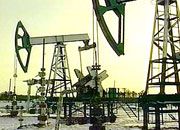According to Reuters, “The G7 price cap will allow non-EU countries to continue importing seaborne Russian crude oil, but it will prohibit shipping, insurance, and re-insurance companies from handling cargoes of Russian crude around the globe, unless it is sold for less than the price cap.”
This means that China will be able to purchase more Russian oil at a large discount while the Russian state-owned oil giant will continue to make a very healthy 16 percent return on average capital employed and more than 8.8 billion roubles ($141 million) in revenues, which means an earnings before interest, taxes, depreciation, and amortization that more than doubles its capital expenditure requirements.
This misguided cap isn’t only a subsidy to China and a price that still makes Rosneft enormously profitable and able to pay billions to the Russian state in taxes. It’s also a big mistake if we want to see lower oil prices.
With this cap, the G7 has created an unnecessary and artificial bottom to old prices. The G7 didn’t want to understand why oil prices have roundtripped in 2022: that is, competition and demand reaction. By implementing a $60-a-barrel cap, which is a bottom price, the G7 has made it almost impossible for prices to reach a true bottom if a demand crisis arrives. On the one hand, the G7 has taken 4.5 million barrels a day, the estimated Russian oil exports for 2023, out of the supply picture with a minimum—and maximum—price, but has additionally made OPEC keener on cutting supply and raising their exports’ average realized oil price higher.
China must be exceedingly happy. The Asian giant will secure a long-term supply at an attractive price from Russia and sell refined products globally at higher margins. Sinopec and Petrochina will find enough opportunities in the global market to secure better margins for their refined products while guaranteeing affordable supply in a challenging economic situation.
When I read this news about “price caps,” I wonder if bureaucrats have ever worked in a global competitive industry. They may not have, but they certainly employ thousands of “experts” that may have told them that this is a clever idea. It’s rubbish.
If the G7 really wanted to hurt Russia’s finances and exports, the way to do it is to encourage higher investment in alternative and more competitive sources. However, what’s happening is the opposite. G7 governments continue to impose barriers to investment in energy as well as regulatory and wrongly called environmental burdens that make it even more difficult to guarantee diversification and security of supply.
What killed the oil crisis of the seventies was the phenomenal rise of investment in other productive areas. What has allowed oil prices to do an almost 180-degree year-to-date move is higher supply, non-OPEC competition, and demand response.
The energy sector already suffers from concerning levels of underinvestment. According to Morgan Stanley, oil and gas underinvestment has reached $600 billion per annum. With this so-called price cap, the incentive for producers to sell what they can and invest as little as possible is even higher, and this may imply much higher oil prices in the future. China and Russia also know that renewables and other alternatives are nowhere close to being a widely available alternative and that, anyhow, this would require trillions of dollars of investment in the mining of copper, cobalt, and rare earths.
By adding a so-called cap on Russian oil prices to the increasing barriers to developing domestic resources, the G7 may be planting the seeds of a commodity super-cycle where dependence on OPEC and Russia increases, instead of decreasing.
I repeat what I have been saying for months: The developed economies’ governments are taking their countries from a modest dependence on Russia to a massive dependence on China and Russia.
Daniel Lacalle, Ph.D., is chief economist at hedge fund Tressis


